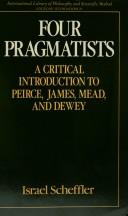| Listing 1 - 10 of 19 | << page >> |
Sort by
|
Book
Publisher: Paris : Schleicher Frères.
Abstract | Keywords | Export | Availability | Bookmark
 Loading...
Loading...Choose an application
- Reference Manager
- EndNote
- RefWorks (Direct export to RefWorks)
Book
Year: 1974 Publisher: Brussel Paleis voor Schone Kunsten (Brussel)
Abstract | Keywords | Export | Availability | Bookmark
 Loading...
Loading...Choose an application
- Reference Manager
- EndNote
- RefWorks (Direct export to RefWorks)
tantrisme --- levensfilosofie --- hindoeïsme

ISBN: 0710210019 9780710210012 Year: 1986 Publisher: London Routledge and Kegan Paul
Abstract | Keywords | Export | Availability | Bookmark
 Loading...
Loading...Choose an application
- Reference Manager
- EndNote
- RefWorks (Direct export to RefWorks)
Book
ISBN: 9782072694363 2072694361 Year: 2016 Publisher: [Paris] Gallimard
Abstract | Keywords | Export | Availability | Bookmark
 Loading...
Loading...Choose an application
- Reference Manager
- EndNote
- RefWorks (Direct export to RefWorks)
We do not know why we were born or what we become after death. We are all astray. That's the question, "What am I doing here" that this pocket manual strives to meet.
Life. --- 165.745 --- 165.745 Levensfilosofie --- Levensfilosofie --- Life --- Philosophy
Book
Year: 1941 Publisher: Den Haag : Leopold,
Abstract | Keywords | Export | Availability | Bookmark
 Loading...
Loading...Choose an application
- Reference Manager
- EndNote
- RefWorks (Direct export to RefWorks)
Book
ISBN: 9024277051 Year: 1990 Publisher: Kampen Agora
Abstract | Keywords | Export | Availability | Bookmark
 Loading...
Loading...Choose an application
- Reference Manager
- EndNote
- RefWorks (Direct export to RefWorks)
Book
Abstract | Keywords | Export | Availability | Bookmark
 Loading...
Loading...Choose an application
- Reference Manager
- EndNote
- RefWorks (Direct export to RefWorks)
Book

ISBN: 9783959056946 Year: 2022 Publisher: Leipzig Spector Books
Abstract | Keywords | Export | Availability | Bookmark
 Loading...
Loading...Choose an application
- Reference Manager
- EndNote
- RefWorks (Direct export to RefWorks)
According to Sylvia Wynter, "We humans cannot pre-exist our origin myths any more than a bee can pre-exist its beehive." Such *representations of origin* comprise cosmogonies through which each human group responds to the question of who-we-are. The function of these stories is to initiate the members of societies into *sociogenic/cosmogonic replicator codes*, which underwrite the social mechanisms of in- and ex-clusion as well as the production of meaning. Drawing inspiration from Wynter's companion essays "The Ceremony Must Be Found" (1984) and "The ceremony Found" (2015), *Ceremony (Burial of an Undead World)* engages closely with her thought to argue that "modernity," contrary to its own self-image as rational and secular, is also determined by origin myths that emerged through the mutations of Christian cosmology following the dawn of capitalism in the late Middle Ages. Furthermore, modernity is predicated on a series of "underside costs": from dispossession and slavery to extractivism and climate change. Featuring over two dozen unique contributions and commentaries upon Wynter's propositions from artists and writers, this publication constitutes a critical reference point for those seeking to construct and envisage a "counter-cosmogony"- a revolutionary turning/overturning of the world-systemic conditions that currently endanger planetary life.
ceremonies --- capitalism --- art criticism --- myths --- Wynter, Sylvia --- levensfilosofie
Book
ISBN: 9782897600259 289760025X 9782897600266 Year: 2015 Publisher: Montréal, QC Médiaspaul
Abstract | Keywords | Export | Availability | Bookmark
 Loading...
Loading...Choose an application
- Reference Manager
- EndNote
- RefWorks (Direct export to RefWorks)
Le cabinet de travail, plutôt encombré, montre des signes de vétusté. Un chat gris ronronne sur le calorifère. L'homme s'appelle Henri. Il est penché sur son bureau. Il est vieux, voûté. Il écrit consciencieusement au crayon de plomb dans un cahier ligné. Pas d'ordinateur pour lui. Parfois, il efface et il se reprend. A certains moments, il s'arrête et lève la tête. Il regarde devant lui, mais ne voit rien. A quoi pense-t-il ? Que peut-il donc écrire ? Un traité ? Non, sûrement pas. Un article savant ? Non plus. Toute son attitude montre une autre sorte de préoccupation. Ses mémoires ? Peut-être. Sans doute un journal, mais pas n'importe quel. Il écrit dans l'urgence, comme si sa vie en dépendait. Oui, certainement un journal qui exige de lui la plus intense concentration. Quelles confidences y consigne-t-il ? Quelles vagues réminiscences ? Quels inavouables désirs ? Ou peut-être cherche-t-il par là simplement à trouver des réponses à ce qui n'en a pas ? En tout état de cause, on a envie de jeter un oeil par-dessus son épaule pour y dérober quelques-uns de ses secrets.
Book
ISBN: 9023221346 Year: 1985 Publisher: Assen : Van Gorcum,
Abstract | Keywords | Export | Availability | Bookmark
 Loading...
Loading...Choose an application
- Reference Manager
- EndNote
- RefWorks (Direct export to RefWorks)
165.74 --- Pragmatisme. Humanisme. Levensfilosofie --- Humanism, Religious. --- Life. --- 165.74 Pragmatisme. Humanisme. Levensfilosofie --- Humanism, Religious --- Life --- Religious humanism --- Theological anthropology --- Philosophy
| Listing 1 - 10 of 19 | << page >> |
Sort by
|

 Search
Search Feedback
Feedback About UniCat
About UniCat  Help
Help News
News